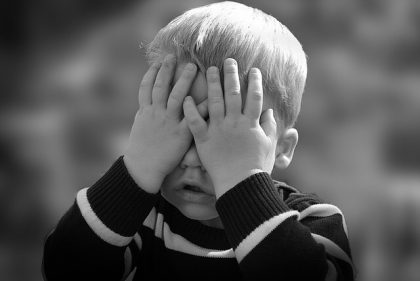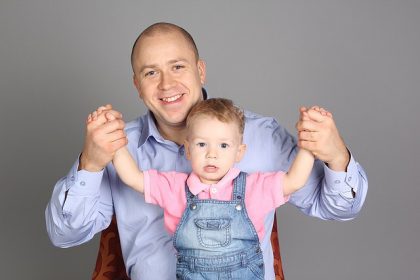 Among our most difficult challenges is to be congruent with what we feel and who we are. From the time we are small children, we are infused with ideas about the rules and norms we should follow; about what is right and wrong, as well as what we should and should not do.
Among our most difficult challenges is to be congruent with what we feel and who we are. From the time we are small children, we are infused with ideas about the rules and norms we should follow; about what is right and wrong, as well as what we should and should not do.
As a child, we are told: “Big boys don’t cry,” and, “Little girls should always look pretty.” Nevertheless, t he pain producing tears doesn’t distinguish between gender, and we all have a bad day every now and then, even if we are beautiful. We are taught in school to be the best student in the class, instead of being instructed to learn and to be wise. We were rewarded when we followed the rules and punished when we went outside the limits. We were taught to embrace the the model of a responsible father and a loving mother.
he pain producing tears doesn’t distinguish between gender, and we all have a bad day every now and then, even if we are beautiful. We are taught in school to be the best student in the class, instead of being instructed to learn and to be wise. We were rewarded when we followed the rules and punished when we went outside the limits. We were taught to embrace the the model of a responsible father and a loving mother.
 As we grew, we also learned we should always be happy and motivated, because being depressed and down doesn’t “look good”, and as such, isn’t allowed. We have been trained to dress impeccably before going out into the world, and of course, we should always have a smile from ear to ear. We have been educated to grin even when we feel bad and to say “thank you” and “please” even when it doesn’t seem right. We have been conditioned to be quiet, when it makes no sense.
As we grew, we also learned we should always be happy and motivated, because being depressed and down doesn’t “look good”, and as such, isn’t allowed. We have been trained to dress impeccably before going out into the world, and of course, we should always have a smile from ear to ear. We have been educated to grin even when we feel bad and to say “thank you” and “please” even when it doesn’t seem right. We have been conditioned to be quiet, when it makes no sense.
It’s worthwhile to ask ourselves
Why have we been brought up this way and who is responsible for filling our heads with so many prejudices between what is good and bad?
More than society, which makes a great scapegoat, it has been our own parents, and their parents before them. With the best of intentions they transmitted a series of ideals about characteristics a perfect person should possess, which by the way, are virtually impossible to achieve.
Has there ever been anybody whose behavior was beyond reproach, at all times, and with no exception?
Is there anyone who in a moment of weakness has not said even a “little white lie” with the justification of not making someone feel bad?
It’s easy to talk about honor, honesty and even integrity, but it’s very difficult (if not impossible), to live a life without mistakes or an occasional black cloud covering our world.
Is it realistic and desirable to want to be the perfect person we have been told we should be?
Is there anything worse than going to a job we hate, or having to live over and over again the same drama with the same person?
Instead of trying to be the perfect person in some fairy tale, we can give our best effort to be the best we can be by being congruent with what we feel, think, and do, taking into account that:
We don’t always want to go out like a smiling “knight in shining armor”
We don’t always want to be working in a dead end job leading us absolutely nowhere
We don’t always want to have the same discussions, for the same reasons, with the same people
When we understand that what is really right and wrong has more to do with what we feel inside than anything outside, we begin to comprehend it isn’t necessary to conform or bend to every norm we have ever learned. In addition, we can recognize our parents, teachers, and others who have influenced us, have not wanted to purposely hurt us, and on the contrary, they have wanted to help us; though many of their teachings don’t hold up under reality.
So, what can we do?
 We can be congruent by giving our best effort, despite not feeling good
We can be congruent by giving our best effort, despite not feeling good
We can be congruent by saying “I can’t go on” when our body says, “Stop!”
We can be congruent by doing the best we can in the job we have, knowing it is what keeps us alive and can get us to where we want to go
We can be congruent by saying, “Enough,” to the person who continues like a scratched record, saying the same things over and over, we don’t want to hear ad infinitum.
Life isn’t always brilliant, beautiful, and bright. There are times when we will not feel good and when it seems as if the weight of the world is upon us. In those instances, we can give our best effort with what we’ve got, where we are, and how we are. Being congruent is knowing that even though we may not be perfect, we are perfect in our own imperfection.
∞ Rob McBride ∞
LL IV 19


